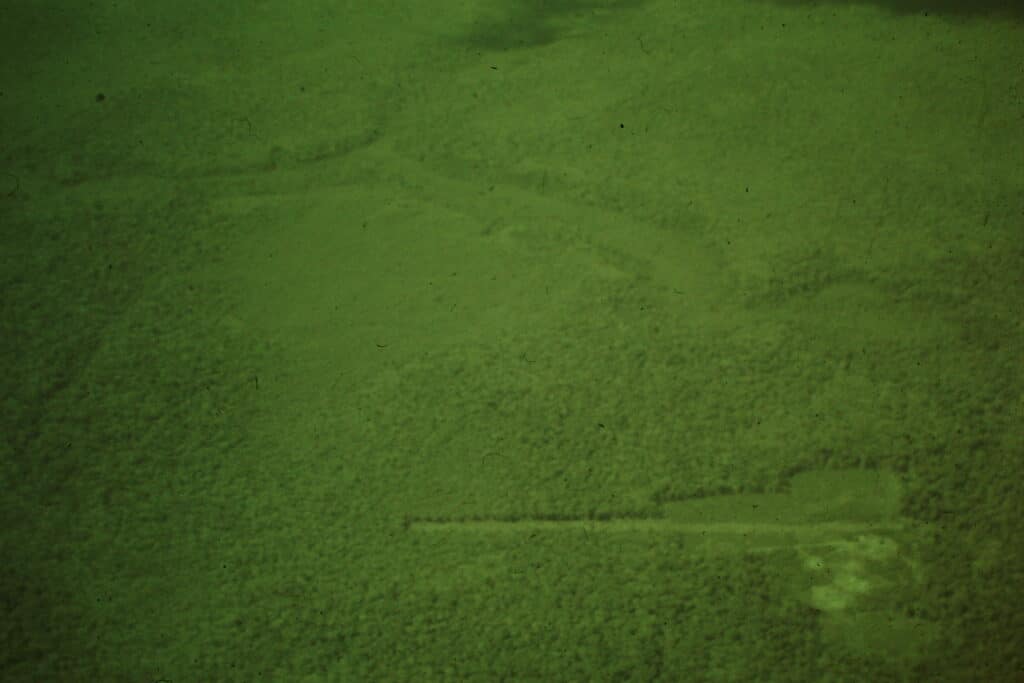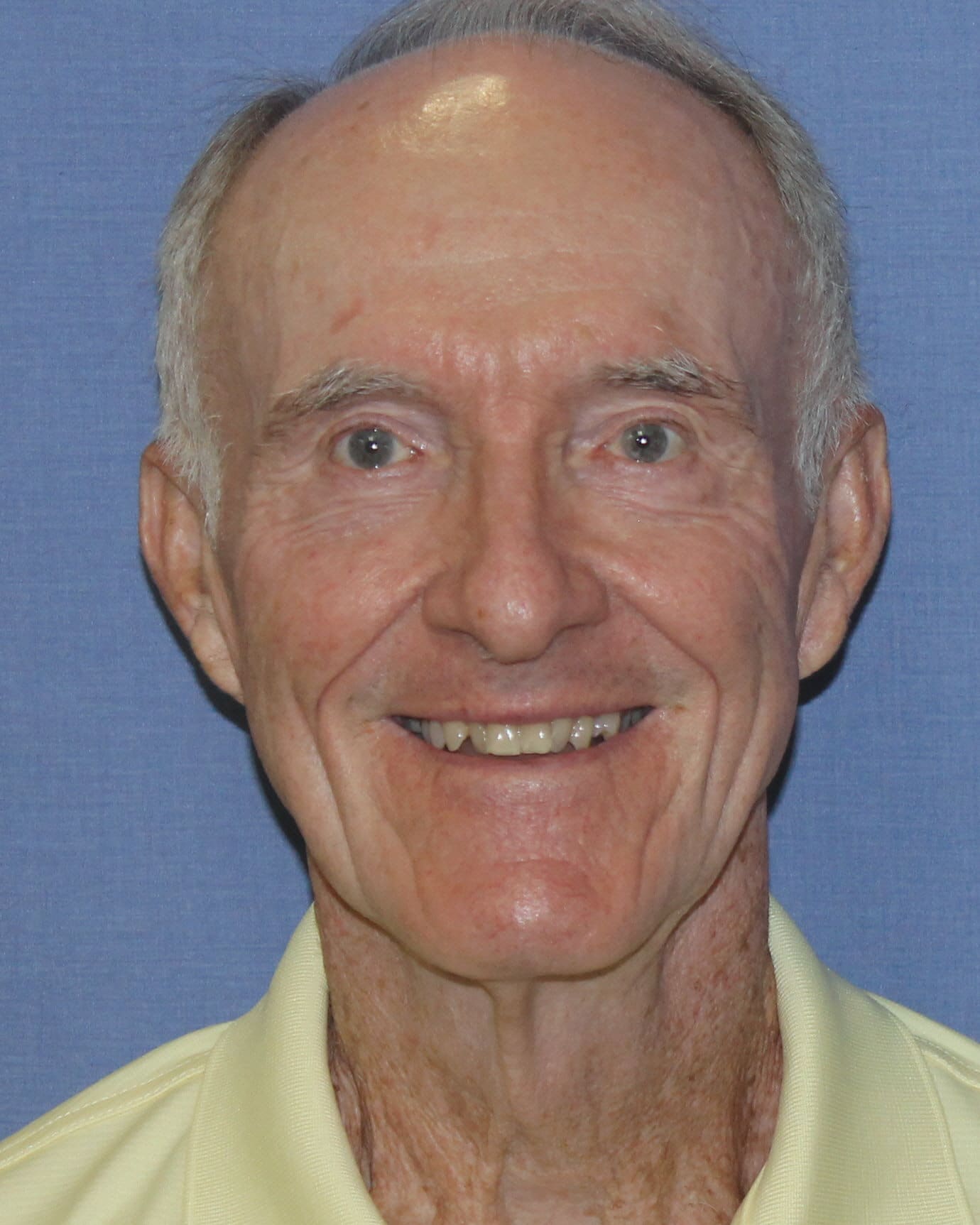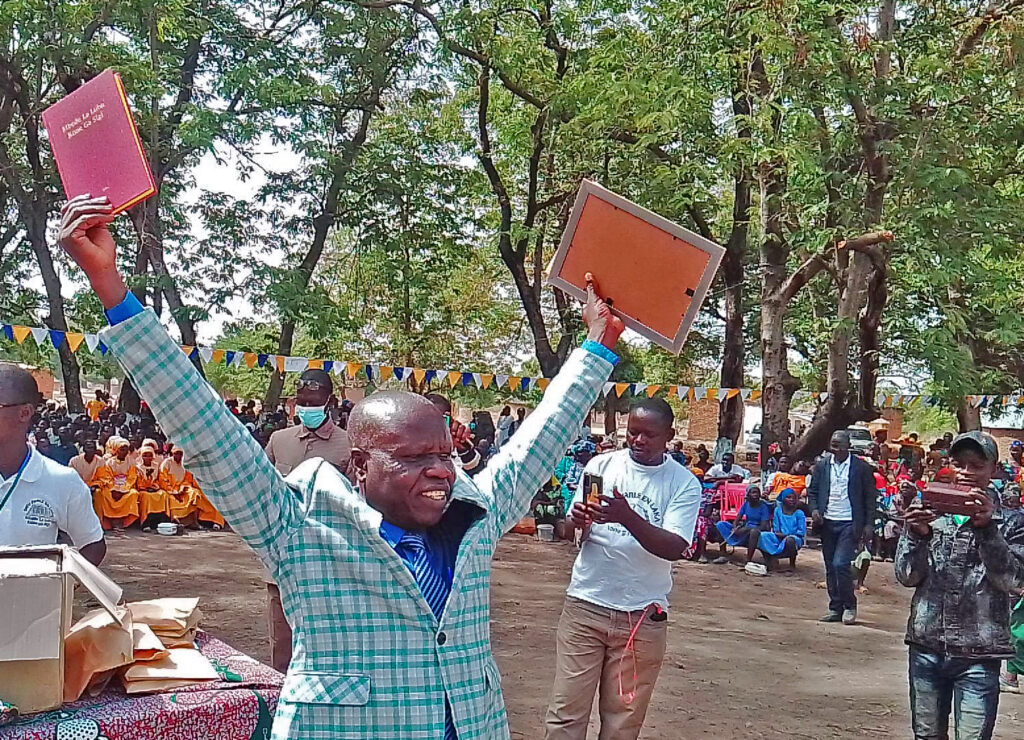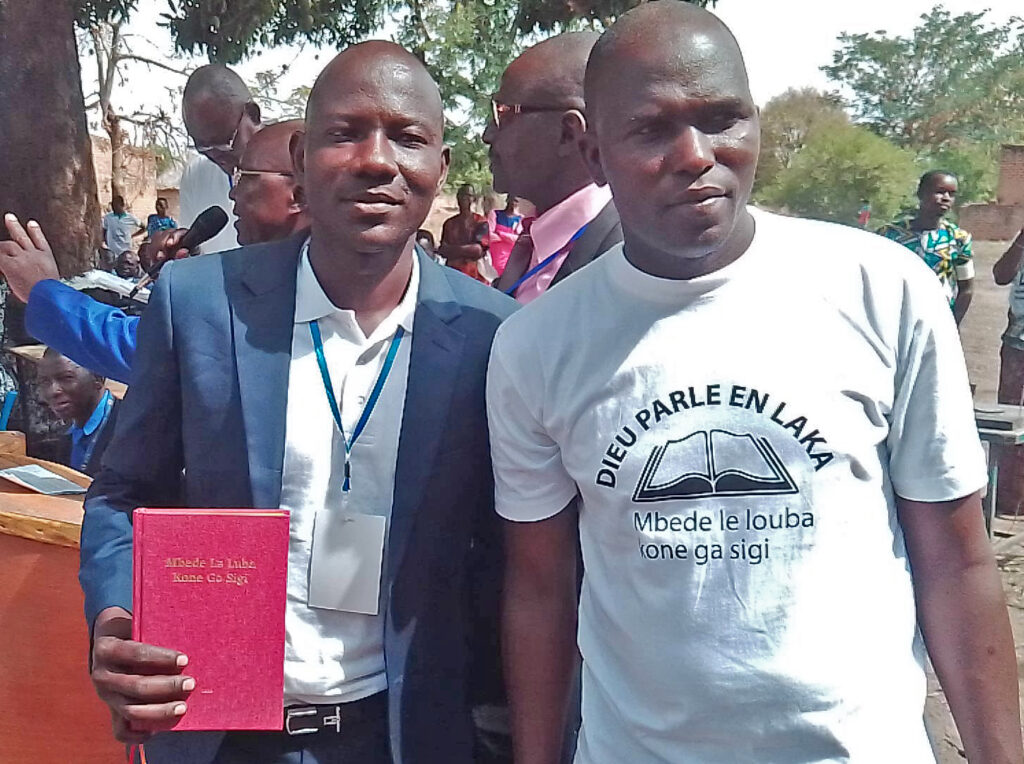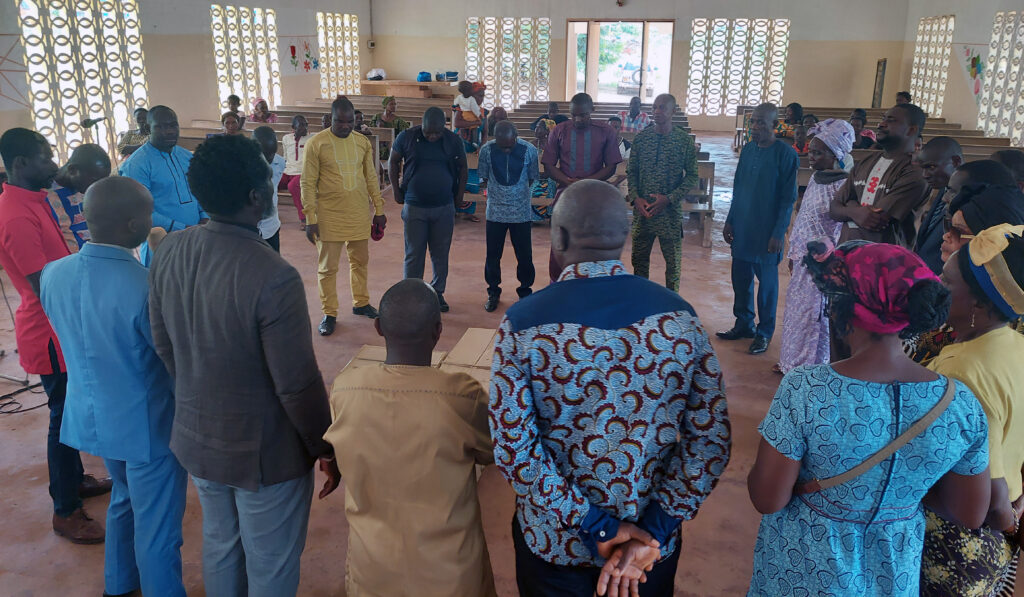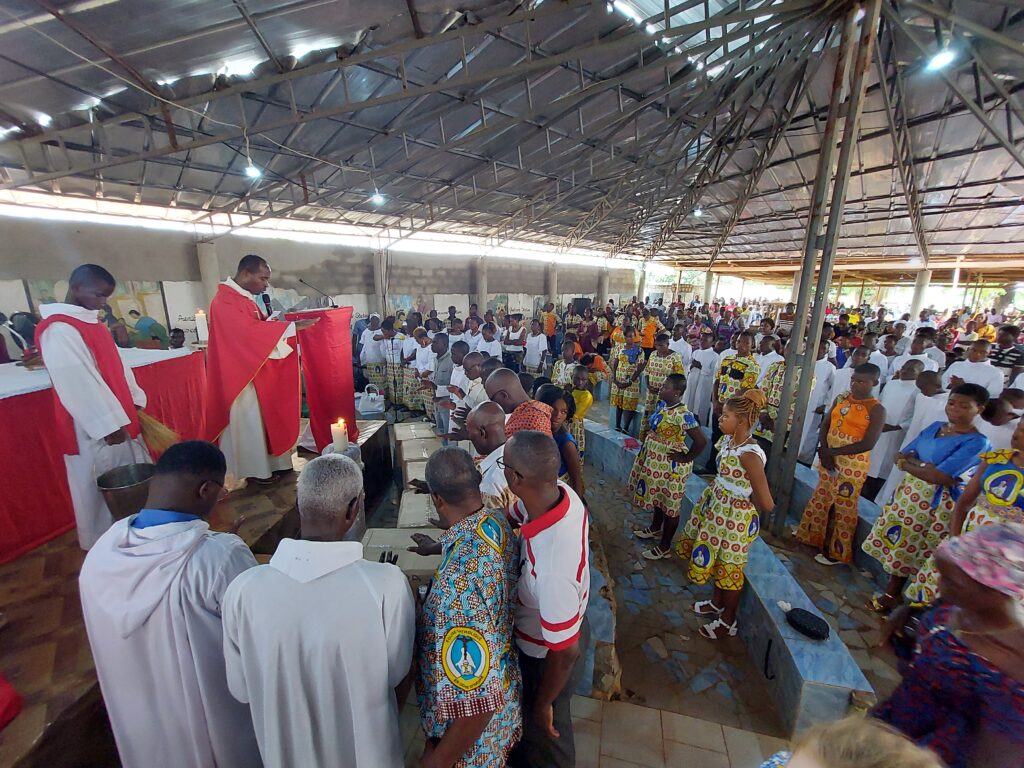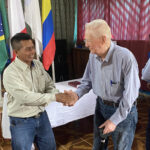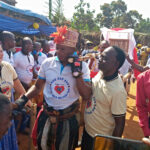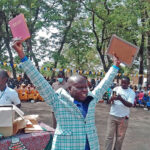The Miracle Airstrip
Primitive airstrips carved out of jungles and mountains can’t perform miracles, but they can enable miracles to happen. Just ask Becky Spencer.
Becky and her husband Dave recently shared a treasured memory of how God blessed them with a series of miracles during their early years of serving in Brazil with SIL, a JAARS Bible translation partner. In the mid-70s they were working with the Mamaindé people in a remote area of central Brazil. Their first trip from the SIL regional center in Cuiabá to the isolated location where the Mamaindé lived was a “routine” 17-hour bus trip and a one- hour walk to the village. Their return trip was more typical of transportation challenges the Spencers would face. Becky recalls that trip.
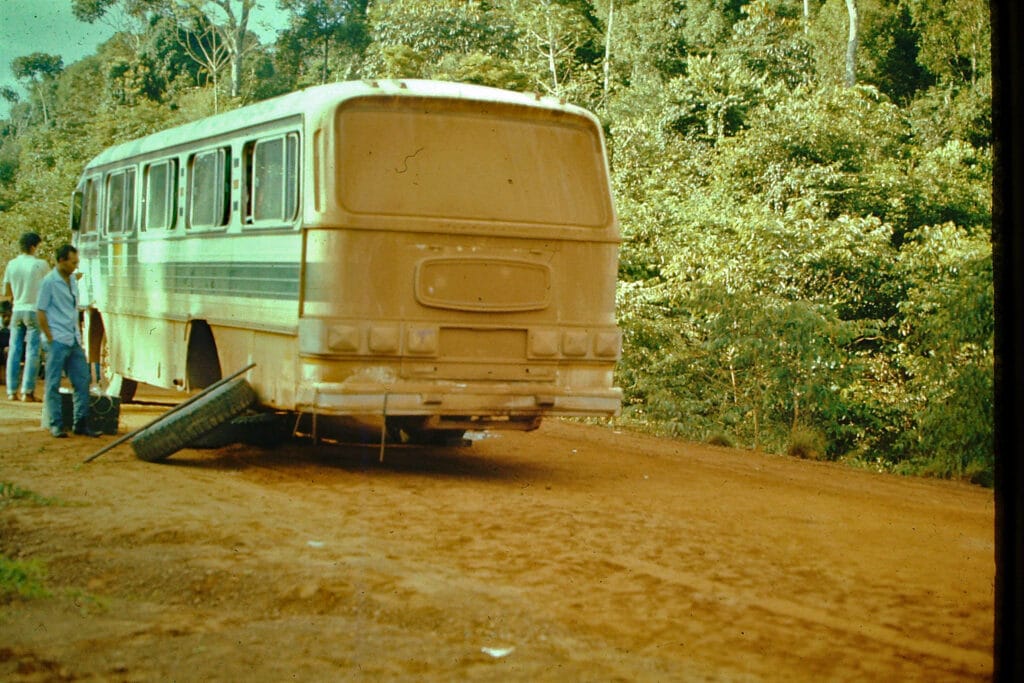
“We walked for an hour from the village and arrived at the roadside about 7:00 a.m. Two buses passed us by during the day, and it was 10:30 at night before another bus finally stopped. There were no seats available, so I sat on a radio suitcase Dave set up in the aisle. Fifteen minutes later two rear wheels flew off and immobilized the bus. We knew we would be stuck for an uncomfortable night.”
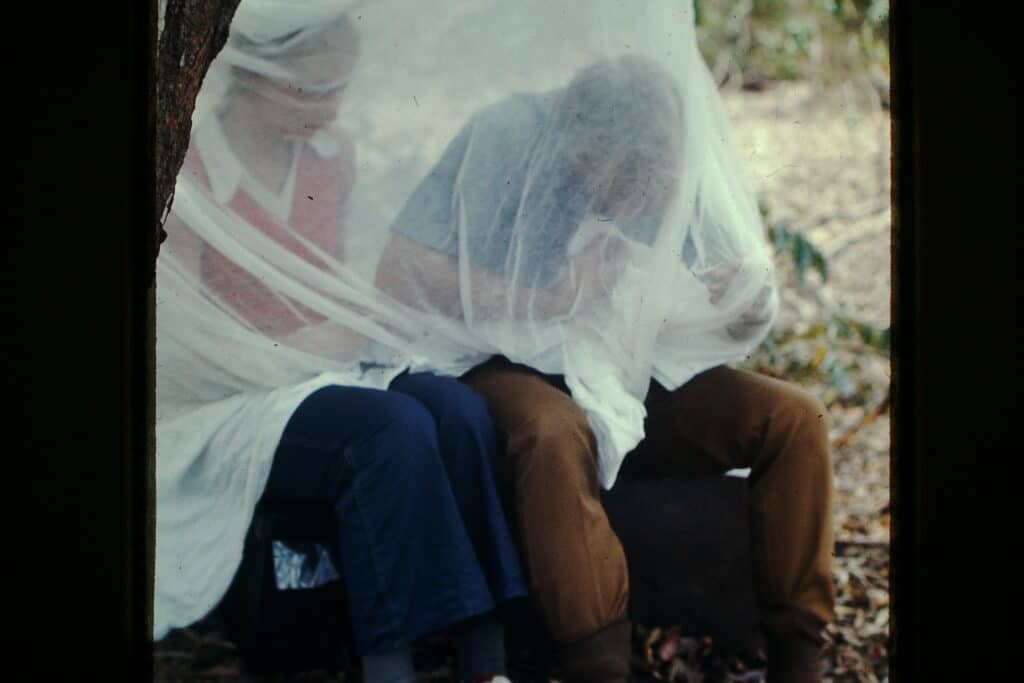
The next day the Spencers hitched a ride with a convoy of three trucks hauling rubber. Tom Avery, their orientation leader, sat in a VW bug perched atop a load of rubber. Becky and Dave rode in the cab of the second truck, with their luggage loaded onto the third. Dave recalls the trip: “We spent the day picking our way through ruts and mud holes, got stuck, pushed one of the trucks through the mud, and still, we did not make it to Cuiabá.
“We overnighted at an isolated outpost where we tried to sleep in the cab of the truck. The next day the roads were less muddy with fewer ruts, but a dirt road with heavy traffic can improve conditions only so much!” When they finally reached the SIL center in Cuiabá, a friend remarked “Becky, you’ve got a nice tan.” Becky responded, “Just let me take a shower!”
Later trips were just as bad. There had to be a more efficient way to reach the village if the Mamaindé people were ever to have the Bible in their own language. An airstrip was the obvious answer. But how? With a degree in agriculture, Dave had no experience working on an airstrip. Fortunately, JAARS pilots who were serving in the region did and gave him valuable guidance. With this knowledge and much ingenuity, Dave and his team of Mamaindé men began the challenging project.
First, they had to clear an area in the jungle. About half of a relatively open area had been “cleared” earlier by cutting down trees and setting them afire, yet stumps and debris remained. The other half of the proposed runway was still standing jungle, so the Mamaindé men had to cut down enough trees to clear a strip 30 feet wide, then burn them after they dried for several months.
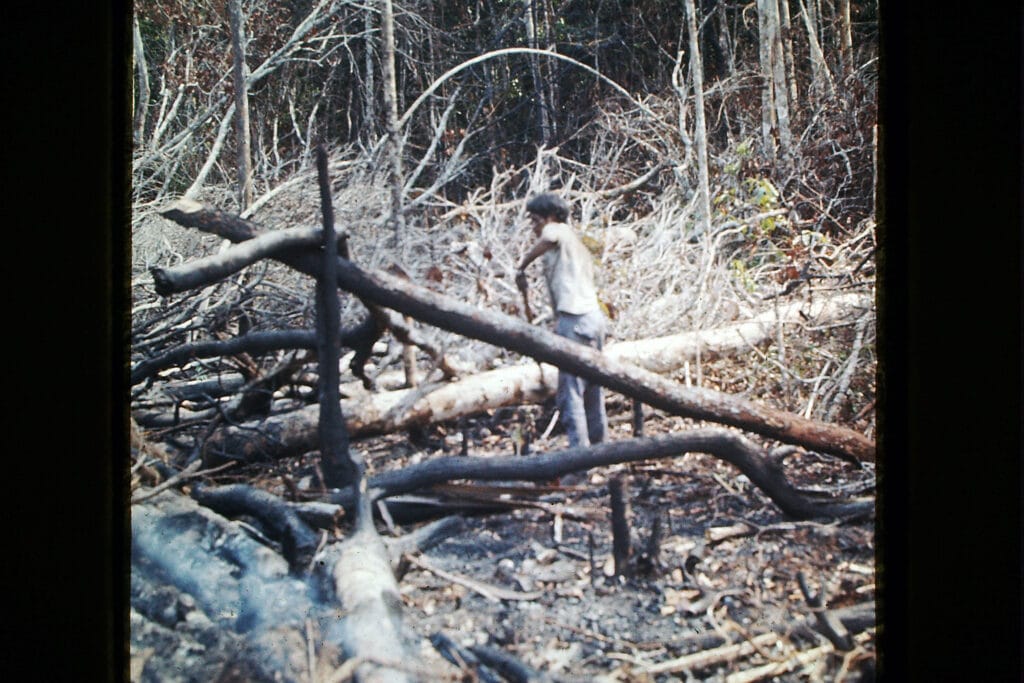
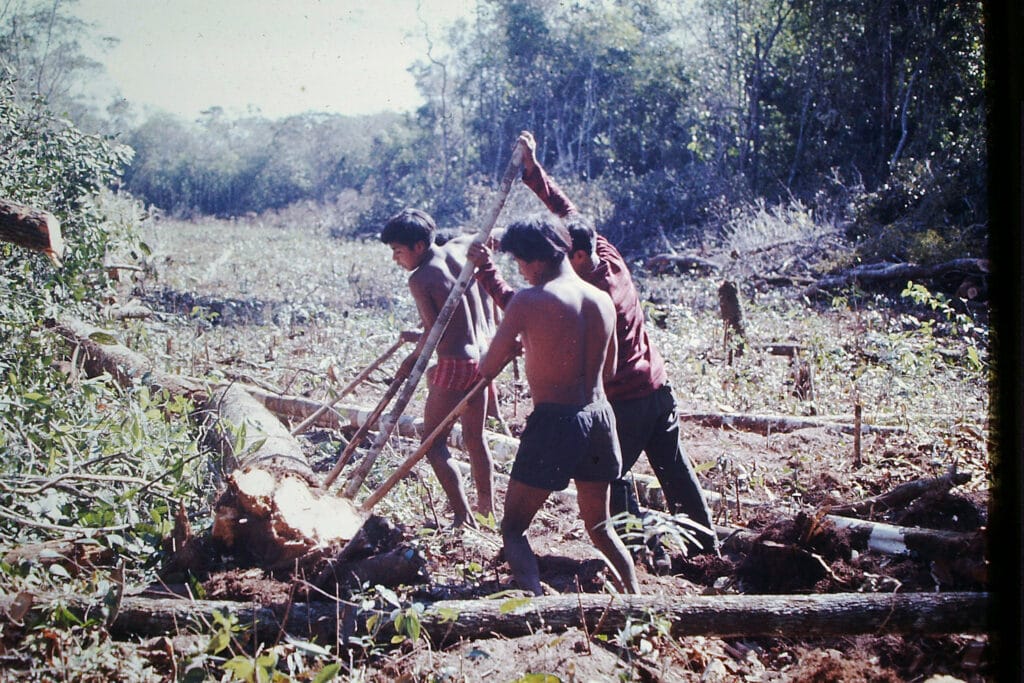
Using only axes, hoes, and machetes, the men dug and chopped stubborn logs and roots from the soil, then used tree poles to roll logs from the future runway. When the area was relatively clear, Dave dragged the soil with a tree-log chained to a borrowed tractor. Beneficial rain then firmed up the sandy soil as it dried.
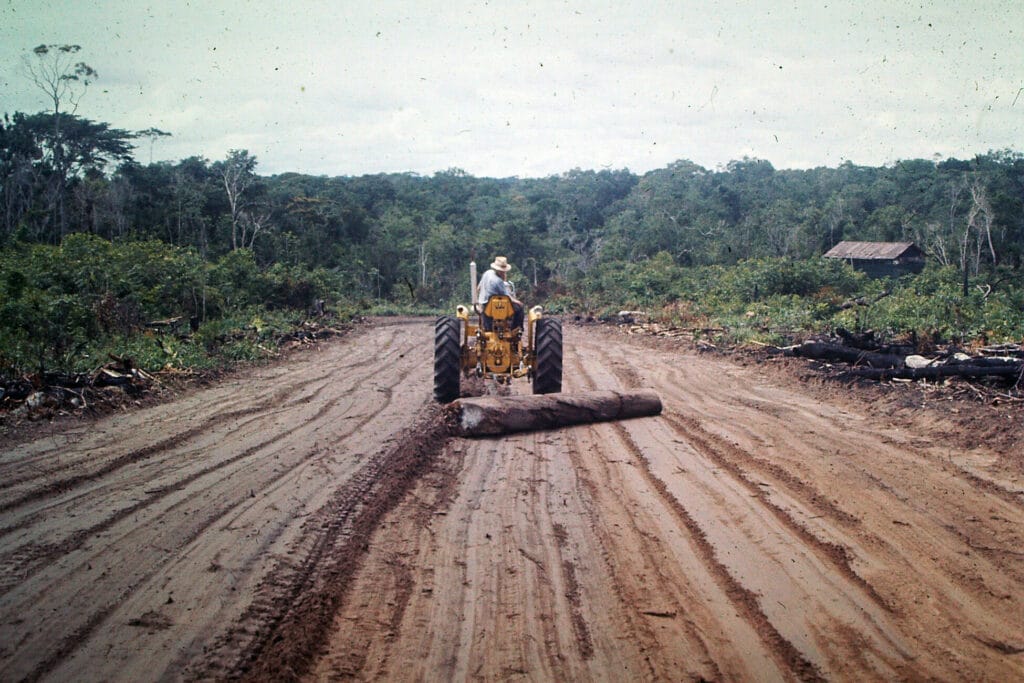
“We had to do all the initial work by hand rather than with equipment,” Dave recalled. “Here was a California farm boy who grew up making smooth orchards now having to work with only a tractor and a single tool—a chain. I had no stump pullers, no blades, and no earth-moving tools of any kind.”
Miraculously, Dave and the Mamaindé men completed the arduous construction project in about eight months. By the end of 1974, the 1,700-foot airstrip was ready to use.
Appropriately, Dave and Becky inaugurated air service to the Mamaindé village when JAARS pilot Bill Priest flew them in from Cuiabá. The 2 1/2-hour flight in lieu of the bus ride was a godsend, recalls Becky. But the convenience of the flight turned out to be less significant than the role the airstrip would play saving Becky and her unborn child.
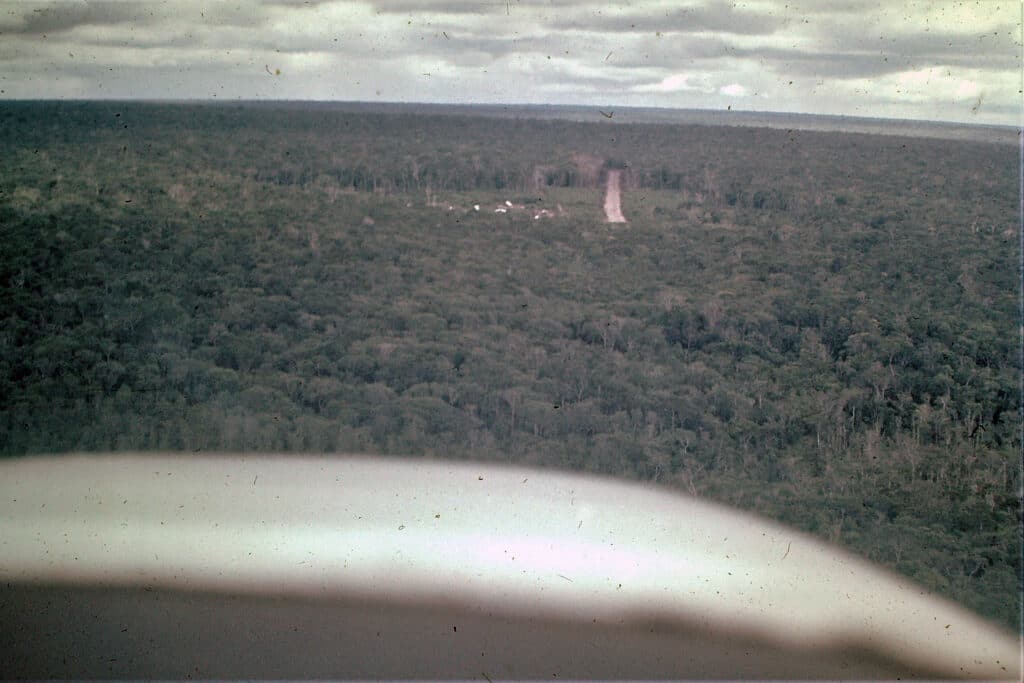
About two weeks after this inaugural flight, Becky—who was two months pregnant—started hemorrhaging. Becky wanted to consult with her doctor in Brasília (over 1,000 miles away) but a two-way radio was the only communication method available, and messages had to go through the regional radio center in Cuiabá. Through static and poor reception, Dave was able to talk to a nurse in Cuiabá where their message for help was relayed and translated back and forth several times before it reached the doctor. His message for Becky: stay prone; medicine will come in on a plane that will fly you out.
The following day, JAARS pilot Don Eagan was able to adjust his scheduled flight so he could detour to the newly opened airstrip for the emergency evacuation. Unfortunately, thunderstorms developed along his planned route. Without GPS or other NAVAIDS, Don had to visually locate the tiny airstrip between clouds and rain, but when he finally arrived, the Spencers were ready and waiting.
Becky’s relief at getting airborne was short-lived, however. “As we made a quick circle over the village on departure,” recalls Becky. “I noticed the fuel gauges; they were on empty! Don assured me that he had measured the fuel quantity in the wings carefully and we had nearly two hours of fuel remaining. But Cuiabá was more than two hours away! Fortunately, Don knew of a landing strip associated with a telecom relay station that was along their route of flight. Two barrels of emergency fuel were stored there. “
After some tense moments searching the vast jungle for the station, Don was able to find the telecom’s airstrip thanks to the large antennas located there. Unfortunately, one of the two fuel barrels was empty, and the other one could not be located, so the Spencers had to spend the night at that lonely outpost. This bad news was tempered by the graciousness of local technicians who found a room that Dave and Becky could use for the night, complete with a double mattress on the floor.
The staff at Cuiabá had a plan for the next day. Another JAARS pilot, Chuck Stacey, was already scheduled for a flight that would pass near the area where the Spencers were stranded. A second pilot, Bob Dix, went along on the flight with medicine for Becky and extra fuel. At the telecom airstrip, Bob swapped airplanes with Don and flew the Spencers back to Cuiabá.
At Cuiabá, a reception committee met the aircraft, and in Becky’s words, “supplied food, lodging, transportation, medical advice, and friendship.” The next day Bob flew the Spencers to Brasília to meet with Becky’s doctor. His orders: complete bed rest for five months. Not easy, but all the efforts of so many people paid off handsomely when the Spencer’s first son, Jonathan, was born healthy and normal.
There were many miracles associated with this story.
- The miracle of Christian friends and acquaintances who rallied around the Spencers. As Dave put it, “At least nineteen people helped us during this emergency.”
- The miracle that the airstrip was built just in time for the evacuation. Without the ability to evacuate Becky by air, her life would have been threatened, and it is unlikely that their son would have reached full term.
- The miracle that funds to complete the airstrip arrived just when needed (and unexpectedly) in the form of a bequest from a recently deceased relative of Dave’s.
- The miracle of doctors who could help Becky.
- The miracle of the well-trained JAARS pilots who made the evacuation possible.
That little airstrip built on sandy soil in the middle of the Amazon was a special miracle, or perhaps more accurately, an example of God at work.
